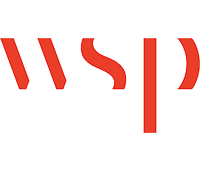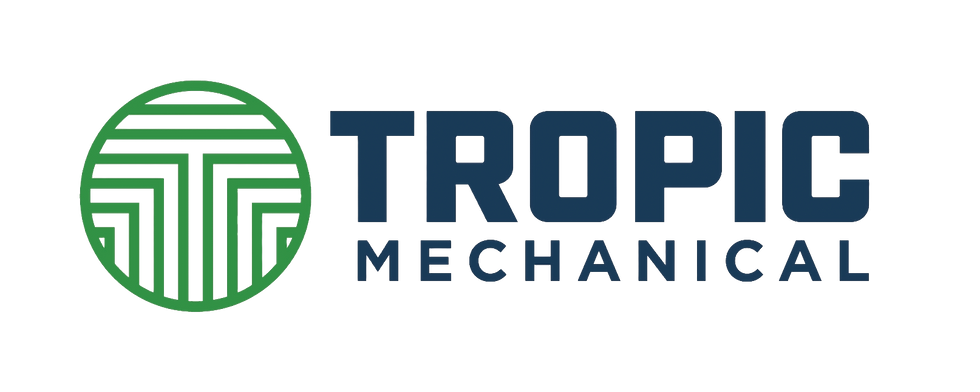2025 SCHEDULE
SUNDAY, SEPTEMBER 28, 2025
MAIN SPEAKER SESSIONS
3:00 PM - 5:30 PM
Coronado J/K


3:30 PM
- 4:30 PM
Session Summary:
This presentation will be an up to date summary of all the questions that have been submitted to the state of Florida Agency for Health Care Administration (AHCA) through the Seminar Website Ask AHCA 2025. This year, it also includes interpretation issues about the 2022 edition of FGI Guidelines from the Chair of the HGRC providing those answers.


4:30 PM
- 5:30 PM
Session Summary:
The landscape of healthcare facility design is continually reshaped by evolving codes and standards. The Lee Health Fort Myers Hospital – a large-scale project with a design phase spanning two code cycles – provides a unique case study on managing these changes. This panel discussion delves into how recent and upcoming changes in the Facility Guidelines Institute (FGI) Guidelines, ASHRAE standards, and Florida Building Code (FBC) influenced, or could have influenced, the project’s design. Featuring perspectives from the project’s owner, architectural code expert, and MEP code expert, the session will explore the changing code requirements and their impact on construction.


4:30 PM
- 5:30 PM
Session Summary:
It's seemingly a problem on every project, MEP systems and architectural systems are at odds and there's always a mess in construction. Design has moved into an integrated, collaborative workflow. The same is true of codes. By looking at the codes differently, how they intersect and work together, we can start to understand the physical space implications of each on the architectural product. We can apply the same principles of integrated teams to integrated code and create better, more coordinated buildings.
MONDAY, SEPTEMBER 29, 2025
MAIN SPEAKER SESSIONS
8:45 AM - 11:30 AM
Coronado J/K


10:00 AM
- 11:00 AM
Session Summary:
This session will be a review of the FGI Facility Code for the Design of Outpatient Settings for the new 2026 revisions that have been incorporated into it. This session is presented by the Co-Chair of the Outpatient code and the Chair of the HGRC.
BREAKAWAY SESSIONS
1:00 PM - 4:30 PM
Panzacola G-H


1:00 PM
- 2:00 PM
Session Summary:
Short Stay Care, Short Term Care, Extended Recovery, these are terms we here interchanged everyday but what does it mean, who is it for, and how do we support it? We believe Short Stay Care is the gate to the next level of outpatient services. By extending the care provided for outpatient or discharged patients, we can enhance productivity in Ambulatory Surgery Centers, decompress hospital surgical suites, and improve on patient recovery and post-surgical care.


2:00 PM
- 3:00 PM
Session Summary:
The paradigm shift from inpatient to outpatient care, and the opportunities and challenges presented by increasingly complex care being performed in outpatient facilities will be investigated. Discussion on current impact of the design of these facilities and the future impact of the 2026 FGI Guidelines might have on these facilities. The panel will delve into the common misconceptions and pitfalls when designing OP facilities, the key differences, challenges and opportunities as well as a look ahead to what the future design of these facilities will be, given the increasing OP care shift.


3:30 PM
- 4:30 PM
Session Summary:
The 2026 edition of the FGI Facility Code: Hospital, Outpatient and Residential all include revisions including many modifications addressing Behavioral and Mental Health units and areas. This presentation will focus on revisions across the FGI Facility Codes related specifically to Behavioral and Mental Health topics while highlighting clarifications, correlation and new content. We will discuss factors behind the changes for the audience to better understand their impact.


1:00 PM
- 2:00 PM
Session Summary:
ANSI/ASHRAE/ASHE Standard 170, Ventilation of Health Care Facilities, is a living document, regularly updated with proposed revisions and interpretation requests between publication cycles. With the next version set for release in 2025, revisions are currently being compiled for incorporation into FGI Facility Code for 2026. This presentation will provide attendees with direct insights into the latest updates and upcoming changes to the standard, featuring perspectives from members of the ASHRAE 170 committee, including a Voting Member, Secretary, and past Chair, along with an FGI board member.


2:00 PM
- 3:00 PM
Session Summary:
Traditional construction turnover and closeout can be a frustrating process for project teams. Scheduling, system pre-testing, and seasonal changes to the system can all present challenges to closeout a project smoothly. We will explore the common issues impacting project testing, time lines, contractor readiness, and integration of the BMS. Leveraging technology for automated testing and utilizing fault detection and diagnostics and remote monitoring can improve time lines and fine-tune systems. We will provide project examples and success stories of how to implement automated testing to save time without sacrificing accuracy and effectiveness of your testing as well as the benefits of deploying a remote monitoring and fault detection and diagnostics platform to supplement your automated testing approach


3:30 PM
- 4:30 PM
Session Summary:
This presentation will discuss the road that has led to the development of a one-of-a-kind guideline. The purpose of Guideline 43 is to provide baseline recommendations for the operation of heating, ventilation and air conditioning (HVAC) systems that provide environmental control in health care facilities as a whole for the safety and comfort of health care facility occupants. The Guideline covers the implementation of a ventilation management program plan (VMP) through defining the responsible party, the minimum elements of a maintenance program along with providing guidance on legacy systems, condition indicators, excursion variations, and program improvement opportunities.


1:00 PM
- 2:00 PM
Session Summary:
This presentation aims to provide designers, installers, and facility owners with valuable insights into the electrical requirements for operating room power systems. We will focus on the risks and benefits of isolated power systems, GFCI protection, and the tools available for conducting comprehensive risk assessments to determine the appropriate provisions for wet environments.
This session will address questions concerning these different environments by examining the relevant code requirements found in NFPA 99, NFPA 70, and the FGI Facilities Code, alongside essential electrical design principles specific to operating rooms.


2:00 PM
- 3:00 PM
Session Summary:
The 2022 FGI Guidelines introduce significant updates in electrical and technology design, offering greater flexibility compared to the 2018 edition. Key changes include more adaptable receptacle requirements, the removal of the staff assist mandate for nurse call systems, and new considerations for behavioral health. While these updates provide increased design options, they do not always result in cost savings unless early coordination is prioritized. This study compares the electrical and technology impacts of the 2018 and 2022 FGI Guidelines through side-by-side analysis and real-world case studies, highlighting cost implications and the importance of proactive collaboration between design teams, owners, contractors, and AHJs.


3:30 PM
- 4:30 PM
Session Summary:
Hospitals require specialized electrical systems to ensure patient and staff safety, reliability, and ease of maintenance. 277V electrical loads, while common in commercial and industrial applications, present challenges that can be particularly detrimental in healthcare environments. This presentation will take a deeper look at the possible benefits of avoiding 277V loads in the design of new greenfield hospitals.


1:00 PM
- 2:00 PM
Session Summary:
NFPA 99 Health Care Facilities Code provides specific categories of patient risks in regards to the types of services offered procedures undertaken. This session will address how a facility can undertake to classify all of the different physical environments that are typically found in a hospital to make good decisions about the risk category of the space. ASHE has also developed information that can be utilized by a hospital in creating this type of complete Risk Assessment.


2:00 PM
- 3:00 PM
Session Summary:
Intelligent hospital planning, driven by automation and AI, is transforming healthcare by enhancing efficiency, minimizing errors, and improving the patient experience. Six foundational pillars of intelligent hospital planning include smart buildings, clinical automation, support automation, smart supply chains, AI-powered analytics, and systems integration, all leading to adaptable spaces that optimize overall operational performance. Data management systems enable real-time decision-making and collaboration, while sustainable technologies reduce costs. Early adoption of these innovations offers competitive advantages and aligns with global digital health trends, ensuring future-proof hospitals with better service delivery.


3:30 PM
- 4:30 PM
Session Summary:
In 2020, Boca Raton Regional Hospital embarked on a transformative journey to nearly double the size of its campus. To accommodate the significant increase in capacity requirements and meet new energy efficiency goals, Baptist Health South Florida began construction on a new central energy plant (CEP).
Although the project faced a host of challenges, the engineering and construction team successfully navigated more than 387 shutdowns, experienced zero patient safety disruptions, and flipped the switch without a hitch. This session will reveal the next frontier of hospital energy management and demonstrate how to plan and build facilities capable of reaching your energy optimization goals.


1:00 PM
- 2:00 PM
Session Summary:
Atriums are often times the center point of a building design, grab all the attention, and become major focal points. However, atriums are in opposition to fire life safety issues and create a unique challenge. Therefore, they are tightly regulated by building and life safety codes and they become a delicate balance of design vs life safety. This presentation will cover several case studies of different atriums recently constructed.


2:00 PM
- 3:00 PM
The 2026 edition of NFPA 25 introduces many valuable changes that help users properly inspect, test, and maintain water-based fire protection systems. However, there are five key changes that stand out and should be understood by anyone who uses or enforces the standard. This presentation will explain those five changes in detail. They involve inspector responsibilities and qualifications; owners’ responsibilities for maintaining corrosion mitigation systems and notifying of impairments; how to address systems with inactive components; and what actions to take when a system experiences a freezing condition. The reasons behind each of these important changes, along with their potential implications for the various parties involved, will be discussed. Audience participation will be encouraged as these changes are presented.


3:30 PM
- 4:30 PM
Session Summary:
Navigating all of the required inspections in a healthcare setting can be challenging.
This presentation seeks to narrow the scope and focus of the inspections of swinging fire barrier doors and smoke barrier doors; including the appropriate repairs as a result of these inspections.
TUESDAY, SEPTEMBER 30, 2025
MAIN SPEAKER SESSIONS
8:30 AM - 12:00 PM
Coronado J/K


8:30 AM
- 9:30 AM
Session Summary:
From the view of an owner’s representative, this session will take a deep dive into what Part I is all about. It’s not what you thought it was. It will answer the questions about who, what, when, and how Part I should be assimilated, documented, utilized and finally reviewed and approved.


10:30 AM
- 11:15 AM
Session Summary:
In the 2026 FGI Facility Code, a new section has been introduced to address an emerging inpatient unit typology: the Medical-Psychiatry Unit or MPU.
As units of this type have begun to emerge around the country, the need for creating a framework of minimum standards to guide the planning and design as well as inform the regulatory review of these units was recognized.
Hear the specific details surrounding the development of this new section from its author, Rob Masters, member of the FGI revision committee, including the specific details on how the new section was refined through the draft cycles of the 2026 FGI Facility Code, the logic behind the development of the section as a framework to inform functional programming, and the importance of driving key clinical conversations with clients to align the functional program and the planning and design of the MPU with the specific needs of both the patient population and the facility delivering care.
BREAKAWAY SESSIONS
1:30 PM - 3:30 PM
Panzacola G-H


1:00 PM
- 3:00 PM
Session Summary:
This 2 hour session approved by the Florida Building Code will review the 8th edition of the FBC its origins and important revisions with a peek at the on-going development of the 9th edition of the FBC. This session will count for the 2025-2027 licensing renewal period for architects, design engineers, and contractors who are required to have 2 hours of Advanced FBC.


1:00 PM
- 2:00 PM
Session Summary:
This session will break down what’s changing, what’s staying the same, and what new exceptions (e.g., ASHRAE updates) mean for compliance. Unlike state code updates, federal regulations governing ASHRAE and Life Safety Code require congressional approval—meaning alignment between state and federal standards isn’t always seamless. This creates risk, complexity, and potential bottlenecks in project delivery.
The session will include understanding the 2026 Regulatory Shift: What the new FGI Facility Codes mean for Florida and how they impact design, construction, and operations, Leveraging Commissioning as a Strategic Advantage, Lessons Learned from the Field, and Optimizing Budget, Schedule & Scope


2:00 PM
- 3:00 PM
Session Summary:
Modern healthcare construction requires knowledge of the proper techniques to review and inspect new and existing conditions. The presentation will focus on the techniques for proper inspection of newly installed and existing penetrations, curtain wall, edge of slab and head of wall conditions. Emphasis will be given to new construction methods including panelized systems, and insulated combustible piping.


1:00 PM
- 2:00 PM
Session Summary:
Enhancing Patient Engagement Through AI-Driven UX in Healthcare Apps" explores how artificial intelligence can create personalized and intuitive user experiences in healthcare applications. By integrating AI, these apps can offer tailored health recommendations, real-time support, and predictive analytics, thereby improving patient interaction and satisfaction. This approach not only enhances user engagement but also promotes better health outcomes and efficient care management.


2:00 PM
- 3:00 PM
Session Summary:
This presentation will outline the significant updates and changes to plumbing and medical requirements in the 2026 FGI Facility Code and discuss how these modifications contribute to safer, smarter, and future-ready Healthcare facilities, ultimately improving patient care. We will focus on the following key areas:
Improved Water Safety
Standardized Medical Gas Requirements
Better Compliance for Imaging Rooms
Enhanced Patient and Staff Safety
Adaptability for Future Healthcare Needs



















